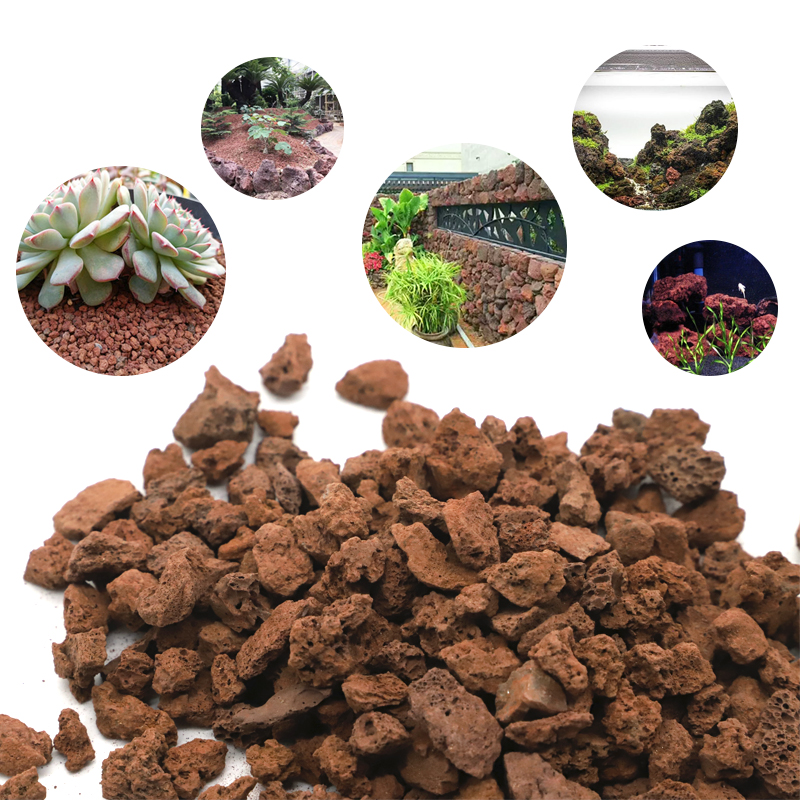Volcanic stone (commonly known as pumice or porous basalt) is a functional and environmentally friendly material, which is a very precious porous stone formed by volcanic glass, minerals, and bubbles after a volcanic eruption. Volcanic stone contains dozens of minerals and trace elements such as sodium, magnesium, aluminum, silicon, calcium, titanium, manganese, iron, nickel, cobalt, and molybdenum. It is non radiative and has far-infrared magnetic waves. After a merciless volcanic eruption, after tens of thousands of years, Humans are increasingly discovering its value. It has now expanded its application fields to fields such as architecture, water conservancy, grinding, filter materials, barbecue charcoal, landscaping, soilless cultivation, and ornamental products, playing an irreplaceable role in various industries.
Volcanic stone is a new type of functional and environmentally friendly material, which is a very precious porous stone formed by volcanic glass, minerals, and bubbles after volcanic eruptions. Volcanic stone contains dozens of minerals and trace elements such as sodium, magnesium, aluminum, silicon, calcium, titanium, manganese, iron, lithium, nickel, cobalt, and molybdenum.
Its characteristics are light weight, high strength, thermal insulation, sound absorption, fire resistance, acid and alkali resistance, corrosion resistance, no pollution, no radiation, and many small pores on the surface, just like pores on the skin. Soaking in engine oil can gradually absorb essential oil components, and then slowly release them to the skin, allowing them to penetrate the human body. In addition, it is combined with formulated essential oil products and special fence detoxification techniques, Volcanic stones have been increasingly used in medicine and aesthetics in recent years as they can solve many annoying skin problems.

Post time: Jul-11-2023

